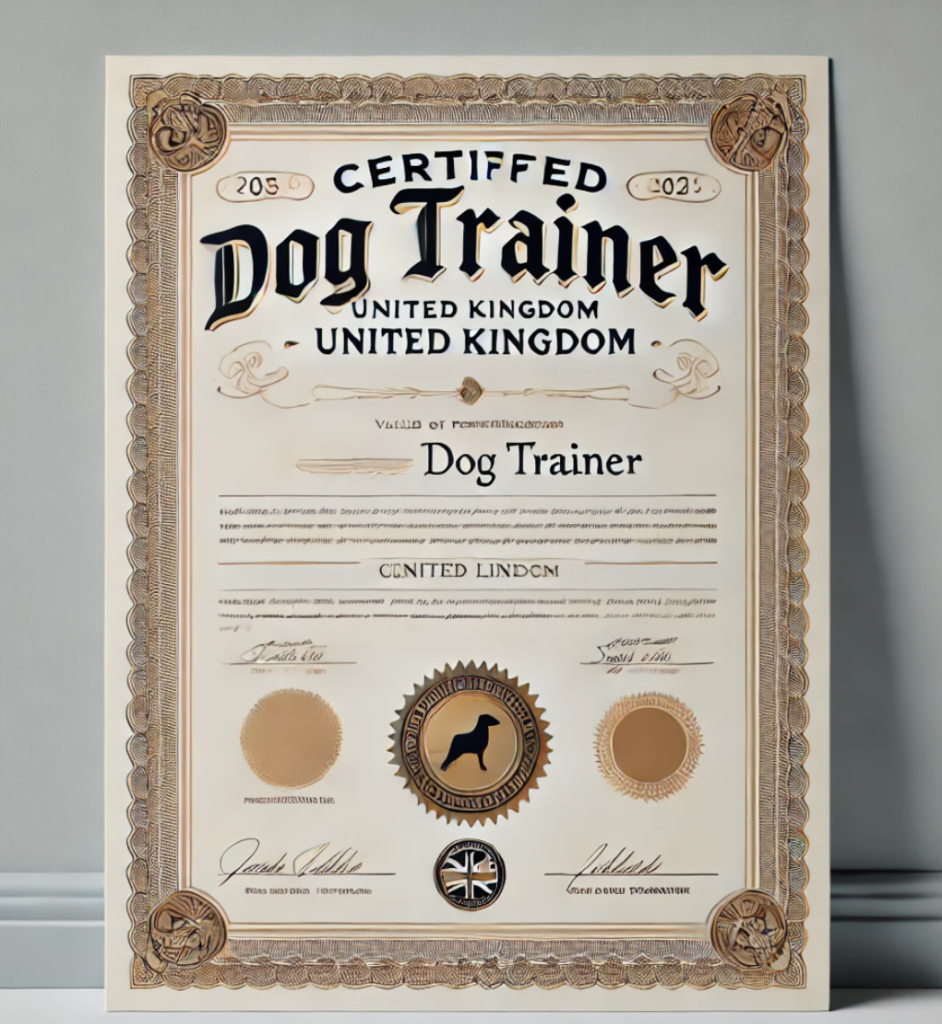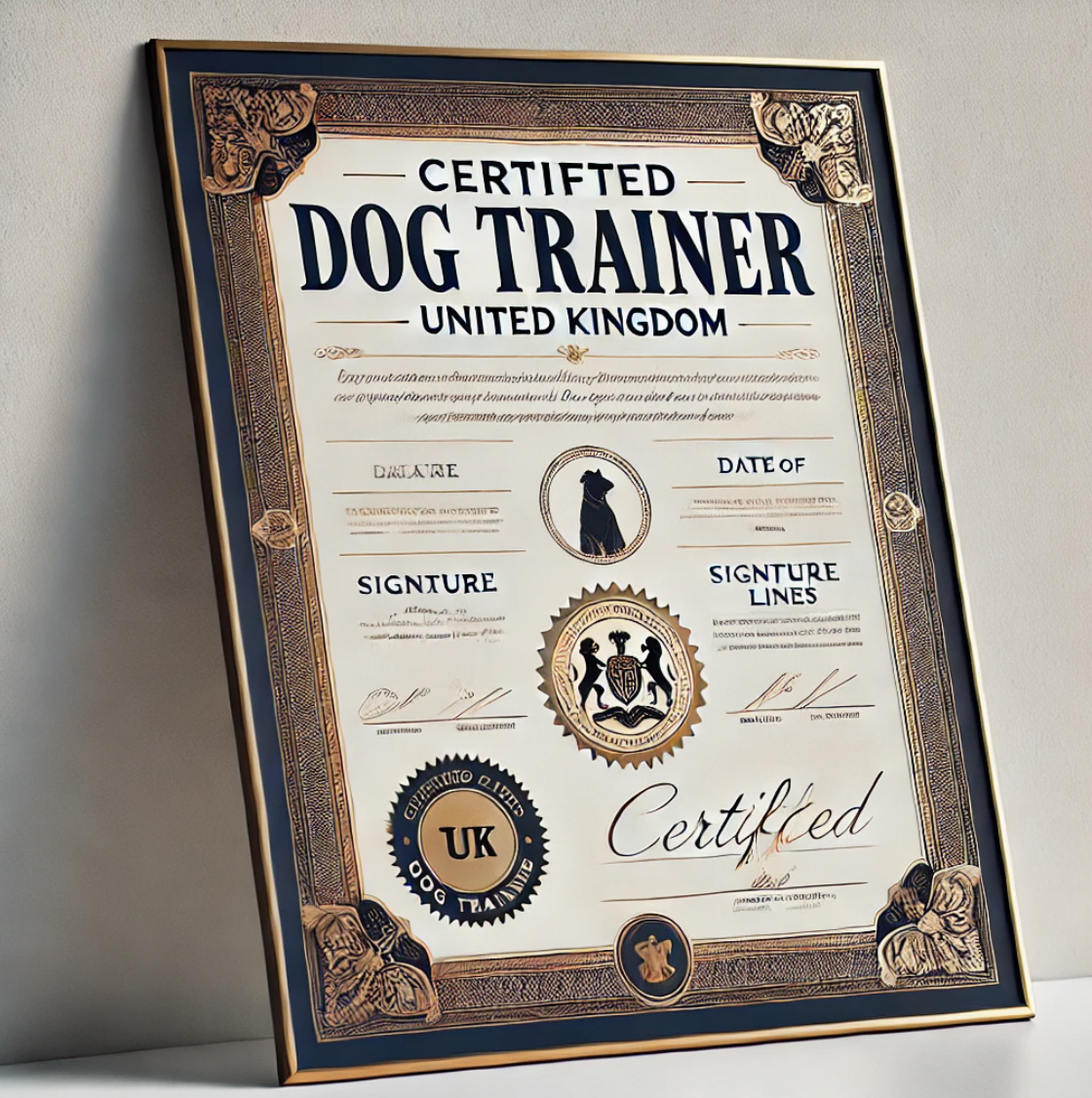Embarking on a career as a certified dog trainer in the UK is both rewarding and fulfilling. As the demand for professional dog trainers continues to rise, understanding the necessary steps to achieve certification is crucial. This comprehensive guide will walk you through the process, from acquiring foundational knowledge to obtaining recognized certifications, ensuring you are well-prepared for a successful career in dog training.
Understanding the Role of a Dog Trainer

Before diving into the certification process, it’s essential to comprehend the responsibilities of a dog trainer. A professional dog trainer works with dogs and their owners to address behavioral issues, teach obedience, and enhance the human-animal bond. This role requires patience, excellent communication skills, and a deep understanding of canine behavior.
Steps to Becoming a Certified Dog Trainer in the UK

1. Gain Practical Experience with Dogs
Hands-on experience is invaluable in this field. Volunteering at animal shelters, working with rescue organizations, or assisting experienced trainers can provide practical insights into canine behavior and training techniques. This experience lays the foundation for your training career.
2. Pursue Relevant Education and Courses
While formal education is not mandatory, enrolling in courses related to animal behavior and training can enhance your knowledge. Institutions like the Dog Training College offer comprehensive programs designed to equip aspiring trainers with essential skills. Their courses cover various aspects of dog training, from basic obedience to advanced behavioral modification techniques.
3. Obtain Certification from Recognized Bodies

Achieving certification from reputable organizations adds credibility to your practice. In the UK, several esteemed bodies offer certification:
- The Kennel Club Accredited Instructor Scheme: This program requires a minimum of five years of instructing experience in your chosen discipline. Applicants must complete online assessments and submit a detailed application showcasing their experience and knowledge. Successful candidates undergo practical and oral assessments before receiving accreditation. More details can be found on The Kennel Club’s website.
- The Institute of Modern Dog Trainers (IMDT): IMDT offers a structured pathway to certification, including a two-day theory course, a four-day practical course, and a one-day assessment. This comprehensive approach ensures trainers are well-prepared to handle various training scenarios. Information about their courses is available on the IMDT website.
- The Association of Pet Dog Trainers (APDT) UK: APDT provides a range of courses to support your journey towards becoming a professional dog training instructor. Their programs are designed to enhance your skills and knowledge in dog training. Learn more on the APDT website.
4. Engage in Continuous Professional Development (CPD)

The field of dog training is continually evolving. Engaging in CPD ensures you stay updated with the latest techniques and methodologies. Attending workshops, seminars, and advanced courses can enhance your skills and keep you informed about industry advancements.
5. Join Professional Organizations
Becoming a member of professional bodies like the APDT or IMDT provides networking opportunities, access to resources, and credibility. These organizations often offer workshops, conferences, and seminars that contribute to your professional growth.
6. Gain Practical Experience
Hands-on experience is crucial in this field. Consider volunteering at animal shelters, assisting experienced trainers, or working with rescue organizations. This exposure allows you to apply theoretical knowledge to real-world situations, enhancing your skills and confidence.
7. Develop Business Acumen
If you plan to operate your own training business, understanding the fundamentals of running a business is essential. This includes marketing, client management, and financial planning. Many trainers offer services such as group classes, one-on-one sessions, and behavioral consultations, requiring effective business strategies.
Challenges and Considerations

Embarking on a career as a dog trainer comes with its challenges:
- Building a Client Base: Establishing a reputation and attracting clients can take time. Offering workshops, free seminars, or community events can help showcase your expertise.
- Dealing with Diverse Behaviors: Each dog is unique, and some may present challenging behaviors. Continuous learning and adaptability are crucial in addressing various training needs.
- Physical Demands: Training dogs can be physically demanding. Maintaining good health and fitness is important to meet the job’s requirements.
Success Stories
Many individuals have transitioned into successful dog training careers:
- Jane Smith: After years in corporate management, Jane pursued her passion for animals. She completed courses with the Dog Training College and gained certification from IMDT. Today, she runs a thriving training business in London, specializing in obedience and agility training.
- Tom Harris: With a background in psychology, Tom combined his understanding of behavior with his love for dogs. He obtained accreditation from The Kennel Club and now works with rescue organizations to rehabilitate and train dogs for rehoming.
Last Bark
Becoming a certified dog trainer in the UK requires dedication, continuous learning, and a genuine passion for canine welfare. By following the outlined steps—gaining experience, pursuing education, obtaining certification, and engaging in professional development—you can build a rewarding career that positively impacts the lives of dogs and their owners. Remember, the journey to becoming a proficient trainer is ongoing, with each experience contributing to your growth and success in this fulfilling profession.



